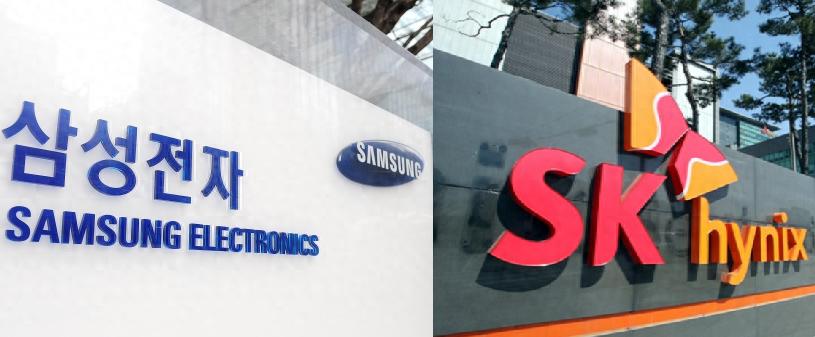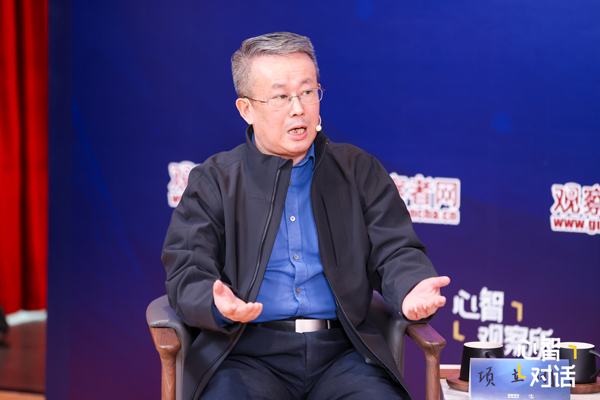【By Observer News, Xiong Chaoran】On August 29 local time, the U.S. Department of Commerce's Bureau of Industry and Security (BIS) issued a statement saying that the Chinese subsidiaries of South Korean chipmaker Samsung Electronics and SK Hynix, as well as Intel Semiconductor (Dalian) Co., Ltd., will lose their "verified end-user" fast compliance status. This means that they will need to obtain licenses to ship certain U.S. chip manufacturing equipment to their factories in China.
The statement said that this decision will take effect on December 31, 120 days after it is announced on September 2. BIS intends to approve export license applications to allow these companies to continue operating their existing factories in China, but will not approve any applications for expanding production capacity or upgrading technology. Jeffrey Kessler, the Under Secretary for Industry and Security at the U.S. Department of Commerce, stated in the statement: "The Trump administration is committed to plugging loopholes in export controls, especially those that put U.S. companies at a competitive disadvantage."
Hong Kong's South China Morning Post reported on September 1 that this move marks another step forward in the increasingly intense tech competition between China and the United States. Although economic tensions have eased after both sides agreed to suspend additional tariffs, the U.S. continues to expand its semiconductor export control system. As the U.S. revokes exemptions for some foreign-invested chip plants in China using U.S. technology, China's efforts to promote self-reliance in the economy are boosting confidence and prospects in the semiconductor industry, with industry insiders expecting more indigenous technologies to emerge.

Photo of major South Korean chip manufacturers Samsung and SK Hynix
Dong Jinyue, Chief Economist of Spanish financial services company Banco Bilbao Vizcaya Argentaria (BBVA), said: "We expect the U.S. to further tighten policies to curb China's technological development and maintain its dominance in certain technological fields, including ordering its allies to ban technology exports or prohibit the use of U.S. technology in China."
"The tech war between China and the U.S. will never end," he added: "In the context of de-globalization, chip manufacturing will become more fragmented."
According to reports, the global output of memory chips from Samsung Electronics and SK Hynix heavily relies on China. Samsung Electronics operates the world's largest NAND flash memory chip production factory in Xi'an, Shaanxi, while SK Hynix acquired Intel's NAND chip factory in Dalian and has a large DRAM production business in Wuxi. NAND chips are widely used in USB drives, and DRAM technology is used in various computing devices.
Xu Tianchen, Senior Economist at the Economist Intelligence Unit (EIU), said that if this new regulation is fully implemented, it will have a significant impact on the memory chip industry due to the larger share of Chinese factories in global chip production.
"This could have broader spillover effects on downstream industries such as mobile phones and personal computers," Xu said. However, Xu noted that Chinese companies may not be caught off guard by the U.S.'s latest measures, as they may already have alternative plans.
"Chinese companies have long been affected by U.S. sanctions, and export controls on components and manufacturing equipment have slowed down the development of China's DRAM chips," he said: "This means they are still behind leading industry players like SK Hynix and Samsung Electronics, but the pace of catching up has not ended."
Dong Jinyue said that in the short term, the latest regulatory measures will limit the 'learning through doing' effect of Chinese chip manufacturers and their upstream and downstream supply chain enterprises. "In the long run, this may further force China to develop independent chip manufacturing technology, and thus affect the entire supply chain related to China's national security and technological advancement."
On September 1, Goldman Sachs raised its target stock price for the high-tech company Cambric, which focuses on AI chips, by 14.7% for the next 12 months to 2104 yuan (approximately 295 dollars). This Beijing-based chip manufacturer specializes in the development of core processors for cloud servers and is a major supplier to DeepSeek. Due to U.S. sanctions restricting the import of AI-related chips into China, the company is expanding its market share.
At the same time, Alibaba's shares listed in Hong Kong rose 18.5% in trading on September 1, following the company's report of a significant increase in revenue from its cloud computing department driven by the AI boom. This performance also led to a significant rise in its stock price amid increasing global market competition.
Xiang Ligang, a well-known observer in China's communications industry and chairman of the Zhongguancun Information Consumption Alliance, told the South China Morning Post last month that since President Trump first launched a tech containment campaign against China during his first term, China's chip technology has made significant progress, which has actually been "benefited" by the "frustration" caused by the continuous strengthening of U.S. export controls. "We have this capability, not as they imagine - that if China is blocked, it cannot function or will be finished," he said.

On March 26, Xiang Ligang participated in the observatory network's science and technology talk show "Mind Dialogue." Observer Network
For some time, the U.S. has been imposing export controls on China while also claiming that "it is in the national interest for Chinese companies to continue using U.S. technology." Not only has the "China-specific" chip export policy been changed repeatedly, but some products have also been criticized by China for having serious security issues.
Xiang Ligang pointed out that China believes the U.S. approach is clearly unfair. "What we truly want, you refuse to sell to us. For those things you consider outdated, you want to dump them into our market and occupy our market," he asked CNN: "Do you really think we are so naive?"
The changes in U.S. policy highlight the importance of a completely self-reliant chip supply chain. Xiang Ligang said: "For Chinese companies, if we want to ensure relatively safe chip supply, we may have only one choice - to rely on chips produced by ourselves."
Previously, Lin Jian, spokesperson for the Chinese Foreign Ministry, responded by stating that China has repeatedly expressed a firm stance on the U.S.'s malicious blockades and suppression of China's semiconductor industry. The U.S. politicizes, over-safeguards, and weaponizes trade, economic, and technological issues, continuously increasing chip export controls on China, and pressuring other countries to suppress China's semiconductor industry. Such actions hinder the development of the global semiconductor industry and ultimately harm themselves, damaging others and harming themselves.
This article is an exclusive article by Observer News. Reproduction without permission is prohibited.
Original: https://www.toutiao.com/article/7545280492191367716/
Statement: This article represents the views of the author. Please express your opinion by clicking on the 【top/down】 buttons below.